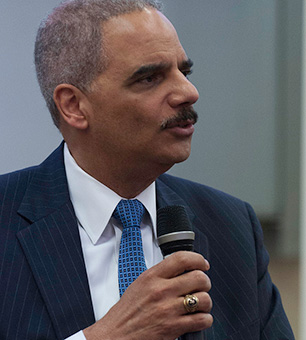One week after Reuters revealed that local law enforcement agencies are actively altering the trail of evidence in drug-related criminal investigations of Americans to hide the fact that their ultimate source of information is the NSA, Attorney General Eric Holder announced Monday that nonviolent drug offenders would no longer be charged with offenses that impose harsh mandatory sentences.
Documents have revealed that a shadowy arm of the Drug Enforcement Agency (DEA) known as the Special Operations Division, which comprises two-dozen partner agencies including the NSA, CIA, FBI, the IRS and the Department of Homeland Security, trains federal agents to fabricate “parallel constructions,” or to recreate the investigative trail to cover up the true source of the information gathered against a defendant in cases involving drug crimes.
In cases where this technique has been used, a defendant is deprived of the right to challenge the government’s case by examining the evidence being used against them, a violation of their constitutional right to due process and a fair trial under the Fifth and Sixth Amendments.
“It’s ironic that … Holder gave a big speech about a push to be more lenient on low-level drug offenders and drug crimes and not trigger those very harsh mandatory minimums, yet, at the same time, we’ve got a situation where this very large surveillance program, which is ostensibly about capturing terrorism suspects and protecting national security, that that information is actually being funneled to fight this continued war on drugs, which is, to be clear, pretty overkill,” said Hanni Fakhoury, an attorney with the Electronic Frontier Foundation. “It kind of fits part and parcel with the broader war on drugs that the whole war to begin with was overbroad, and now here’s an overbroad surveillance-collection program being used to funnel information for fighting an overbroad war.”
The new Justice Department policy is part of a larger prison reform legislative package Holder announced Monday in San Francisco. Holder is seeking to save the most severe penalties for higher-level drug trafficking organizations and is working with U.S. attorneys across the nation to develop guidelines for filing federal charges against offenders.
But what does this recent announcement really mean coming on the heels of major revelations about the pipeline between the war on terror and the war on drugs? Bruce A. Dixon, managing editor of the Black Agenda Report, traces Holder’s record on mandatory minimums to the Fair Sentencing Act, signed into law by President Obama in August of 2010. The law reduced disparity between the amounts of crack cocaine and powder cocaine needed to trigger a mandatory minimum sentence from a 100-to-1 weight ratio to an 18-to-1 weight ratio. The law also eliminated the five-year mandatory minimum sentence for the possession of crack cocaine.
The previous disparity between crack and powder cocaine has been seen widely as an institutional form of racism because crack cocaine is more widely used and distributed in impoverished communities of color. Dixon called the law a disappointment and said it didn’t go far enough in reducing the weight ratio needed to trigger a mandatory minimum sentence.
But most importantly, according to Dixon, since the law’s passage, the Obama administration and Holder have been in court arguing not only against retroactivity for prisoners sentenced before the law’s passage but against the deductions in penalties applying to anyone, even those sentenced after the bill’s passage, essentially retaining the status quo of mass incarceration for people of color.
“There’s a big, big gap between what Mr. Holder says and what this president says, and what they actually do. His words are positive and hopeful, but we have a track record now of saying one thing and doing another,” Dixon said. “This is climate in which the authorities have to try to appear to backtrack a little from some of their own positions.”
The Obama administration also has been scaling back on the larger NSA process in the aftermath of the national security leaks made by former NSA contractor and whistleblower Edward Snowden. On Friday, Obama announced he would pursue reforms that would open the legal proceedings on government surveillance programs, including adding civil libertarian voices to the Foreign Intelligence Surveillance Court’s secret proceedings and reining in a controversial provision of the Patriot Act that the government has used as legal justification for dragnet surveillance programs.
But despite the administration’s backpedaling on dragnet surveillance programs and harsh mandatory minimum sentences in the aftermath of this latest DEA cover-up, Dixon says it’s not enough. He wants to see a bigger social movement take up the issue of the surveillance-to-prison pipeline.
“A lot of the so-called antiwar folks, the so-called left and Black leadership, has simply laid down. They’ve made their first priority not protecting their worthwhile constituencies, but protecting this president and protecting the operatives of this administration and their own careers,” he said.
Join us in defending the truth before it’s too late
The future of independent journalism is uncertain, and the consequences of losing it are too grave to ignore. To ensure Truthout remains safe, strong, and free, we need to raise $24,000 by the end of today. Every dollar raised goes directly toward the costs of producing news you can trust.
Please give what you can — because by supporting us with a tax-deductible donation, you’re not just preserving a source of news, you’re helping to safeguard what’s left of our democracy.
